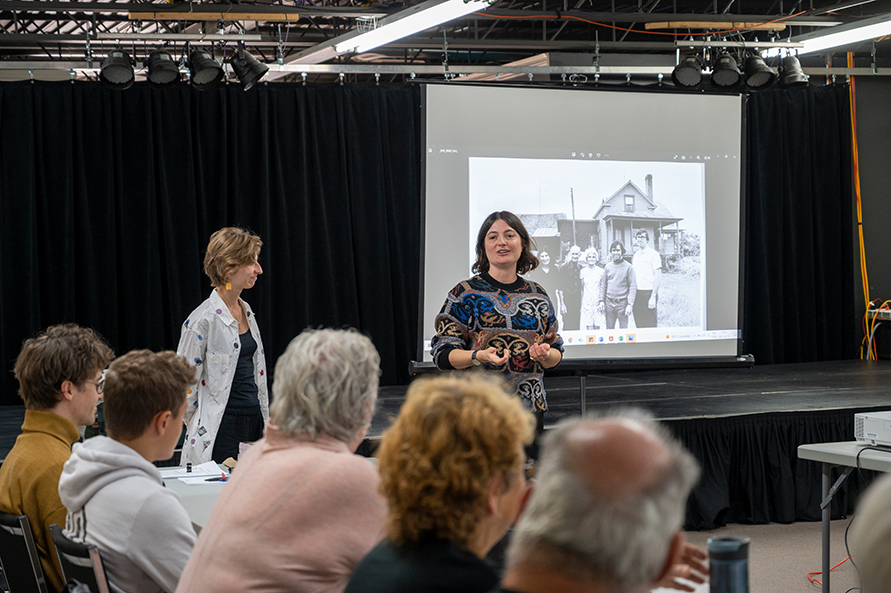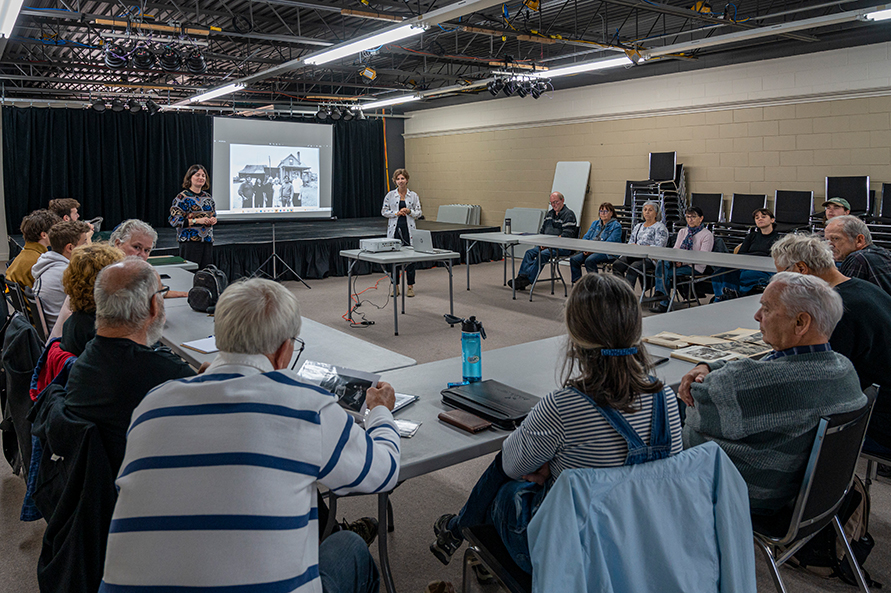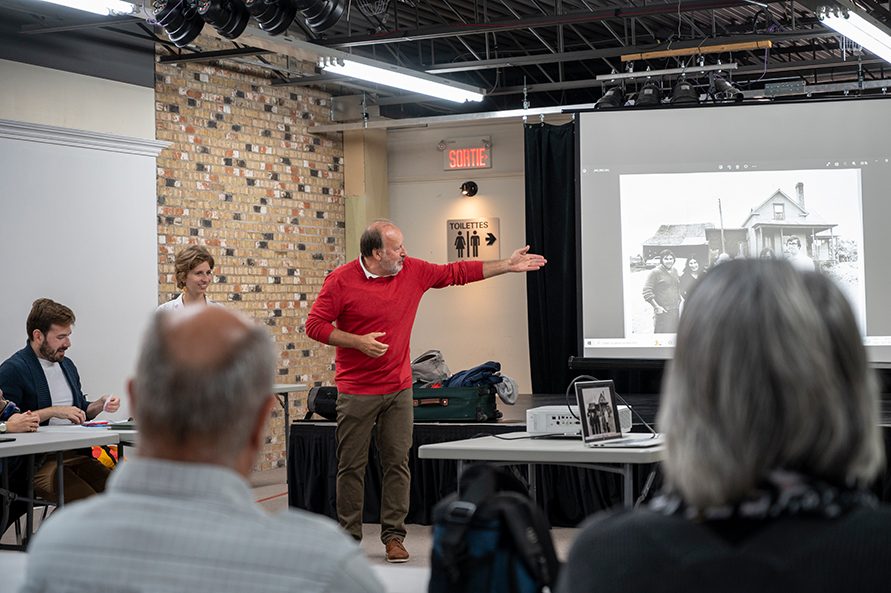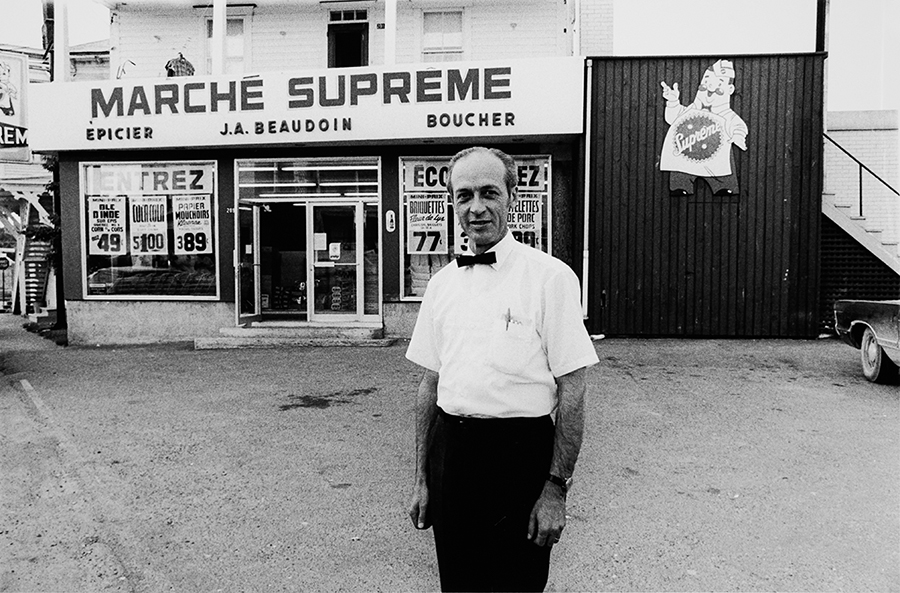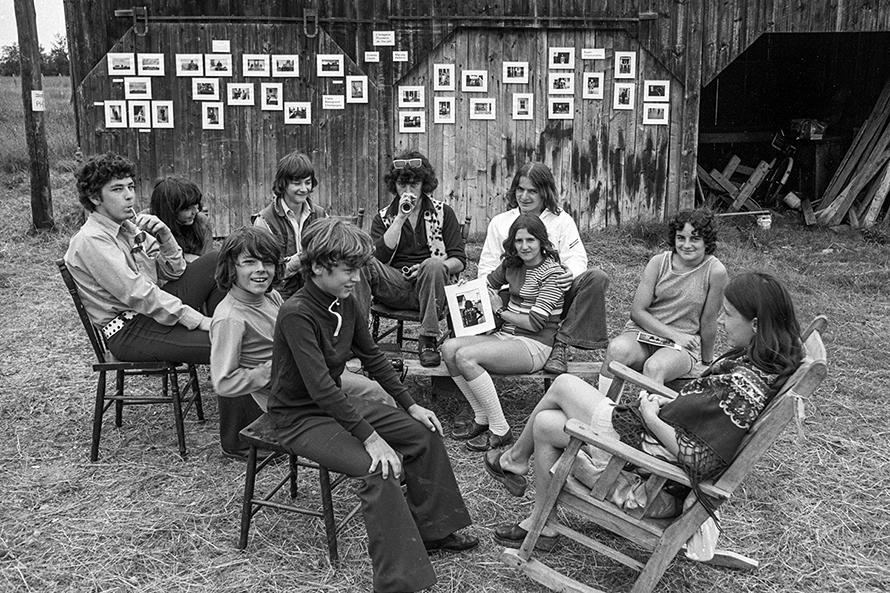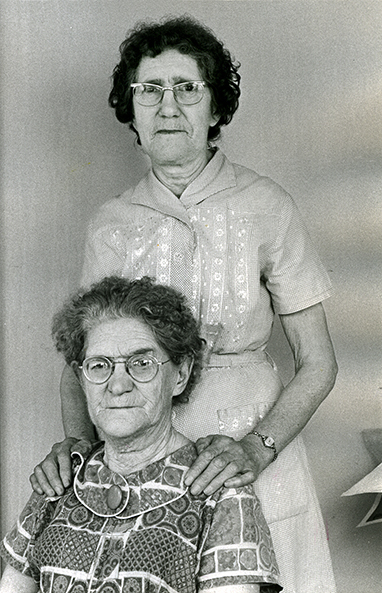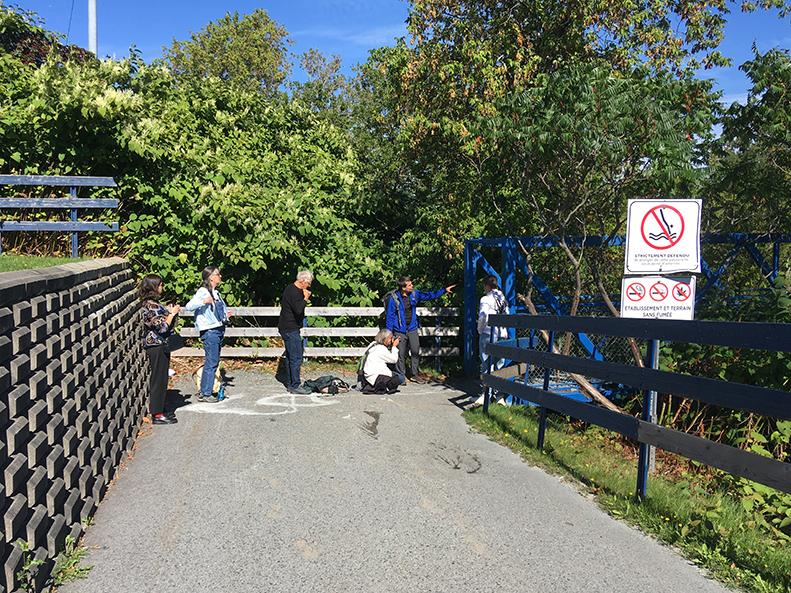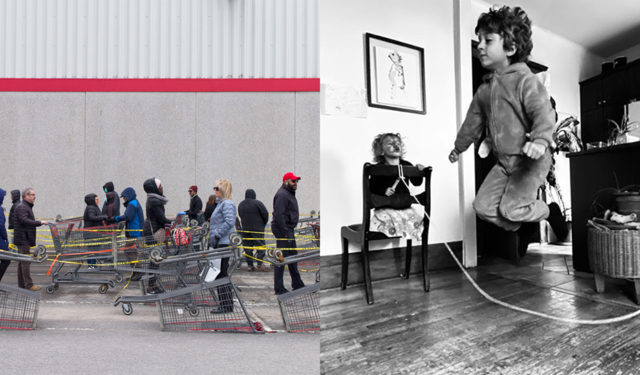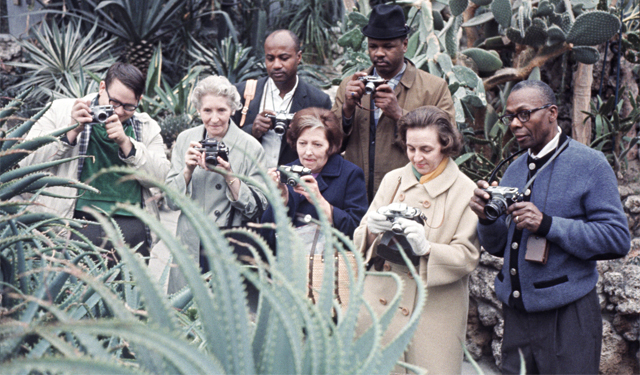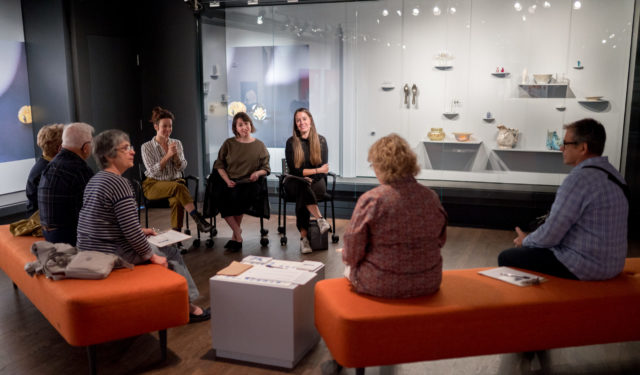Disraeli – The Power of Images to Recall the Past and Recount the Present
During a participatory workshop, members of the Disraeli community reclaimed their history and the power to picture themselves.
October 17, 2022
“For many of us, these black and white photos offered a bleak view, it was humiliating. A picture is worth a thousand words, but which words endure, and whose words?” This comment was made to me by a member of the Société historique de Disraeli, speaking of the photographs taken in the summer of 1972 by the Collectif de l’Imagerie Populaire de Disraeli. It encapsulates the controversy that surrounded the project fifty years ago.
Half a century has elapsed since Claire Beaugrand-Champagne, Michel Campeau, Roger Charbonneau, Cedric Pearson, Maryse Pellerin and Ginette Laurin – four young photographers and two researchers – spent three months in Disraeli with the intention of creating a documentary portrait of its population and life in the community. When some of the photographs they took were published in 1974 in Perspectives, a supplement included in several major French-language newspapers with a combined readership of 550,000, a controversy erupted concerning the ethics of photographic representation. It would transform the world of photography in Quebec.
To mark the 50th anniversary of what is known today as the Disraeli project, a small team from the Museum followed in the photographers’ footsteps and made the trip to Disraeli. The goal this time was to talk to the inhabitants and give them the opportunity to share both their ideas about the historical dispute and their vision of the town and its community today.
The day began at Disraeli’s Cabaret des Arts, in the presence of around twenty interested attendees of all ages. There was talk of the exhibition at the McCord Stewart Museum, but much of the conversation focused on the history of the Disraeli project, as participants viewed a selection of photographs from those being displayed at the Museum – a good number previously unseen.
Many of those present who were either very young or not born in 1972 expressed surprise that a Montreal museum would choose to mount an exhibition about their town. “Why Disraeli? Why not some other place?” They were amazed to learn about the role their community has played in the history of photography in Quebec.
The older people in attendance, however, remembered the photographers’ visit very clearly. Luc Toupin, who was a teenager at the time, remarked: “When I first saw the photos, at sixteen, I wasn’t seeing the same thing. Today, they are memories, but I’m also aware of their artistic interest.”
Johanne, who was a child in 1972, knew nothing about the project. But she was delighted to discover the history of her town via the photographers’ gaze. Leaning close to her son Zack, she said: “Look at that, it’s the history of your town!”
Almost every photo sparked comments and triggered recollections. People recognized families and long-gone businesses – like the restaurant whose sugar pies remain a local legend to this day – excitedly identifying godparents, store owners, teachers and school friends.
Several of the workshop participants recognized themselves as cheekily smiling teenagers. One, Éric Bilodeau, appears in the photograph being used to publicize the McCord Stewart Museum exhibition.
A woman was heard to exclaim: “Oh my god, my second-grade teacher! I remember as if it were yesterday. I was terrified of her.”
All the faces in the photos were painstakingly examined and identified. There was a general sense of exhilaration, and some of the older participants, their youthful memories stirred by the images, were evidently thrilled.
The photographs, once controversial, appeared to have the effect of reviving and stimulating the community’s collective memory. The process of remembrance that took place on that chilly September morning was a pleasure to see. The older people were happy, recollecting, and the younger ones were astonished, discovering.
After lunch at the gourmet store L’à-côté, the workshop got under way. We set off together for a tour of the town accompanied by the photographer Patrick Nadeau. The aim was to offer residents the chance to share images that capture their personal view of their town and community with visitors to the exhibition.
To this end, the Museum has organized a contest inviting people living in the region to submit photographs of their environment. All the images will be featured in the exhibition Disraeli Revisited – Chronicle of an Event in Quebec Photography, and the winner of the contest will receive a cash prize. The idea is to juxtapose, in the exhibition, Disraeli past and Disraeli present, the town as seen through the eyes of the other and through those of its residents.
Workshop participants slowly spread out through the town, camera in hand, eyes wide open. Inspired by the morning’s activity, they were eager to share their Disraeli.
As her son wandered off, snapping photos the while, Johanne chatted to me about the Disraeli Project: “These photos put us on the map, and I think it’s just great.”
One sunny afternoon, fifty years on, the lingering effects of a past scandal gradually morphed into a sense of pride, as a community reclaimed its history and created its own narrative, one picture at a time.

